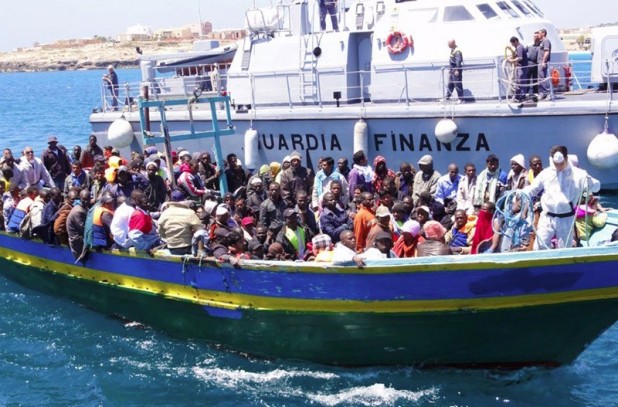The New Observer
May 13, 2016
More nonwhite invaders are landing in Italy than in Greece for the first time in a year, according to new figures released by the United Nations.
Some 9,149 invaders landed on the shores of Italy in April, while “only” some 3,462 nonwhites invaded Greece, the figures show.
The figures represent a marked drop since March, when 26,971 invaders pretending to be refugees landed in Greece—while another 9,676 invaded Italy.
Last year in April, 13,556 nonwhites invaded Greece, while 16,063 invaded Italy from Africa.
The UN figures also confirmed that the new wave of invaders are almost all from sub-Saharan Africa—and therefore not even “refugees” by the wildest stretch of the imagination.
The UN said that most of the invaders coming over the Mediterranean are from Nigeria, Gambia, Somalia, and “other Sub-Saharan African nations.”
The number of invaders arriving in Germany in April was about 16,000, the UN added.
The new invasion figures confirm other reports which have revealed that the European Union’s “Operation Sophia”—designed to supposedly “disrupt people smuggling” across the Mediterranean, has failed completely—and has only had “success” as a “search and rescue operation.”
A report compiled by the British House of Lords said that the stated objective of the mission is to use military means for the “disruption of the business model of human smuggling and trafficking networks in the Southern Central Mediterranean.”
In that, the British report claims, the EU is failing, particularly as regards to the Central Mediterranean route (Libya to Italy).
The authors of the report argue that the operation (named after a baby delivered on an EU ship that had rescued the mother) addresses “symptoms, not causes” of the refugee flow.
Mass migration continues since the operation started in 2015, the report notes.
“The mission does not (…) deter the flow of migrants, disrupt the smugglers’ networks, or impede the business of people smuggling on the central Mediterranean route” the report reads.
Focusing on the desired disruption of the business model, the authors note that the tactic of searching, diverting, and seizing boats has done little to disrupt the lucrative business of people smuggling.
Among the practices that are negatively assessed is the destruction of wooden boats involved in smuggling, which encourages the use of riskier rubber dinghies.
If anything, such tactics are less effective because the low level targets apprehended at sea have little if any motive to cooperate with authorities, thereby disrupting intelligence gathering for onshore smuggling operations.
 Daily Stormer The Most Censored Publication in History
Daily Stormer The Most Censored Publication in History



